Gun vote “was about national identity”
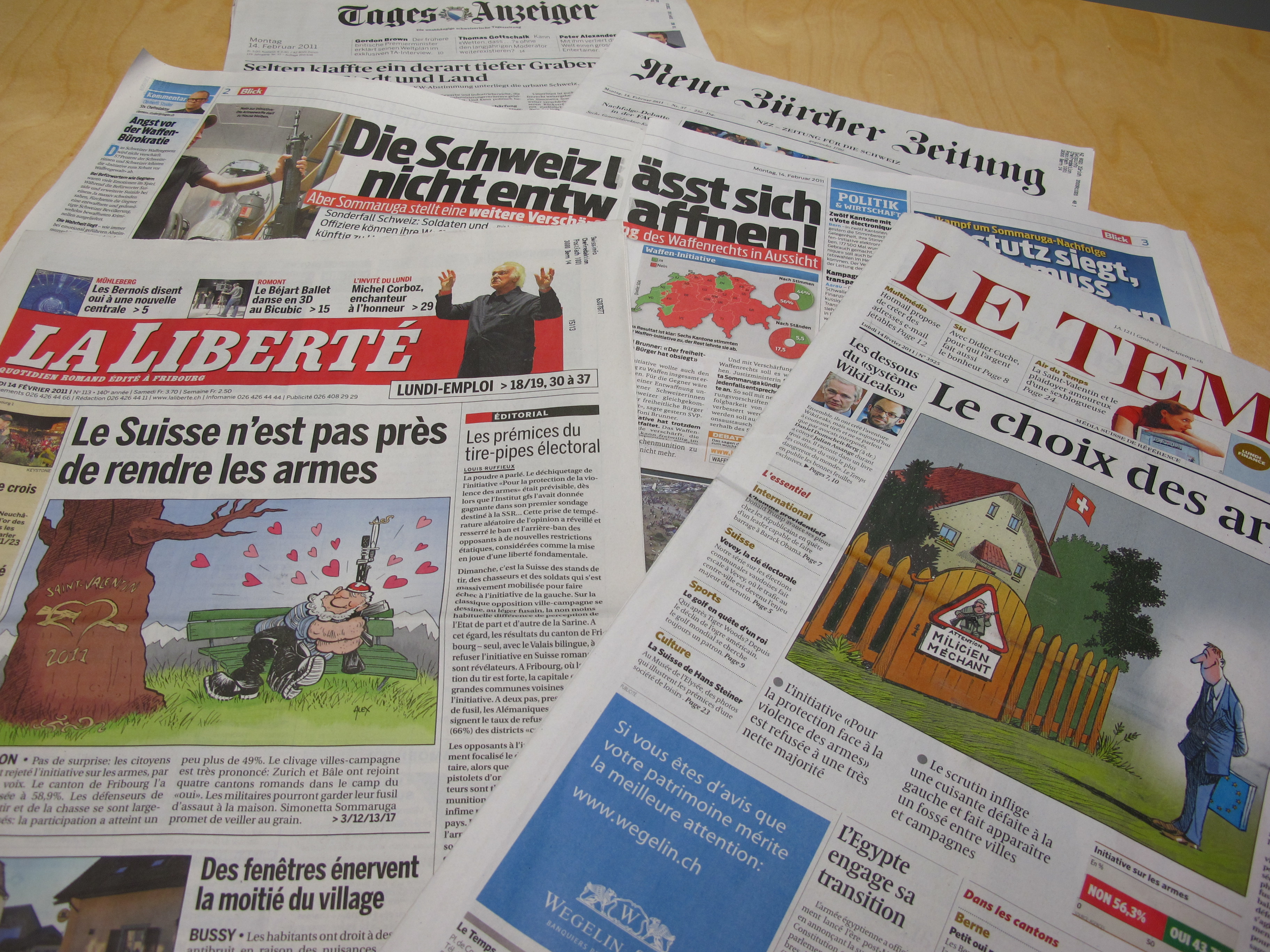
Opponents of a motion to tighten Switzerland’s gun laws succeeded by framing the debate as a loss of freedom, security, values and tradition, say Swiss newspapers.
“A victory for the old Switzerland,” was the headline of the editorial in the Basler Zeitung, following Sunday’s vote in which just over 56 per cent of voters rejected banning army-issue firearms from the home and setting up a central arms register in a bid to curb gun violence.
“Security and the ability to defend oneself are deeply rooted values,” added the Neue Zürcher Zeitung.
Der Bund, in Bern, reckoned “the strength of pathetic symbols can be more powerful than sober reason”.
“A gun in the cellar has become a metaphor for a traditional, well-fortified and independent Switzerland,” said the St Galler Tagblatt, adding that an “excellent marketing machine” had stylised the gun debate as a question of national good or evil.
The Basler Zeitung agreed that the image of a “fortified Switzerland” had been evoked explicitly. “The vote wasn’t about having a weapon in your cupboard, but about Swiss identity as such,” it said.
Zurich’s Tages-Anzeiger agreed. “For broad sections of the population it was a question of national identity, of defending freedom and self-determination and of the fight against the nanny state”.
It concluded: “Such bugbears are excellent ammunition for opponents.”
Bad timing?
The Bund commented that “in a time of general uncertainty… many of the old values and traditions remained convincing”. People clung on to their guns, it said, as a reflex against government paternalism, foreign pressure and general change.
For the Neue Zürcher Zeitung, the result could also point to the fact that “the army is actually better anchored in the population [because] repeated attempts to shake the country’s ability to defend itself regularly fail at the ballot box”.
The Südostschweiz saw another reason for the initiative’s defeat. “Launched out of dismay, it arrived at the polls long after collective outrage had died down”.
Four things stuck out for the mass-circulation Blick: the linguistic divide; the town/country divide; the female vote which had failed to sway the result (in surveys most women wanted guns out of their houses), and that leftwing proposals only have a chance if the middle class is behind them.
The last time this happened, it said, was for the moratorium on genetically modified organisms in Swiss agriculture in 2005.
French-speaking paradoxes
The outcome of Sunday’s nationwide ballot showed considerable differences between the different language regions and between urban and rural regions. Had only the French-speaking cantons voted, the initiative would have passed.
In Geneva, which recorded a yes majority of about 61 per cent, Le Temps noted that the campaign “had to a large extent twisted the initiative’s text”.
“A technical measure… has become a national debate on tradition, criminal foreigners, hobby shooting, hunting – even the existence of the army,” it said.
Le Tribune de Genève said it was “modern Switzerland that had lost this battle” and pointed out the paradox that “conservative Swiss, led by the Swiss People’s Party, had voted against a measure designed to improve safety”.
“Given the choice of saving lives or preserving the out-of-date myth attached to the army rifle, they went for the myth.”
“William Tell is safe”
La Liberté in Fribourg noted that “opponents had cleverly focused the debate on military guns” – even if they represented a “minuscule fraction” of the country’s weapons.
“It was the Switzerland of rifle ranges, hunters and soldiers which mobilised to defeat the initiative,” it said.
Another paradox, picked out by Le Nouvelliste in Valais, was that these were the people whom the initiative had wanted to spare.
“William Tell is safe,” declared Le Quotidien Jurassien. “He can sleep in peace.”
Ultimately, the result was a warning shot for the political left ahead of October’s federal elections, concluded the Tages-Anzeiger.
“The final vote before the election has strengthened the centre-right parties, whose ability to mobilise voters is remarkable. On the other hand, mistrust of solutions put forward by the left meant a proposal that could have passed in fact failed,” it said.
“That should be food for thought for the Socialist Party, whose ivory-tower political programme is scaring off many voters.”
The initiative was aimed at introducing a strict licensing system for the use of firearms and sought a ban on the purchase of automatic weapons and pump action shotguns.
It also called for the creation of a central register for firearms, instead of a cantonal system and a ban on storing army-issue guns at home.
The proposal was launched in 2007 by a broad alliance of NGOs and had the backing of centre-left political parties.
Stop gun violence initiative
Final results:
Yes: 43.7%
No: 56.3%
Turnout: 48.8%
Around 177,500 citizens, including 55,000 Swiss expatriates, were eligible to cast their vote over the internet.
Only 14.4% took part in the e-vote which is part of ongoing tests in 12 cantons, according to the Federal Chancellery.

In compliance with the JTI standards
More: SWI swissinfo.ch certified by the Journalism Trust Initiative

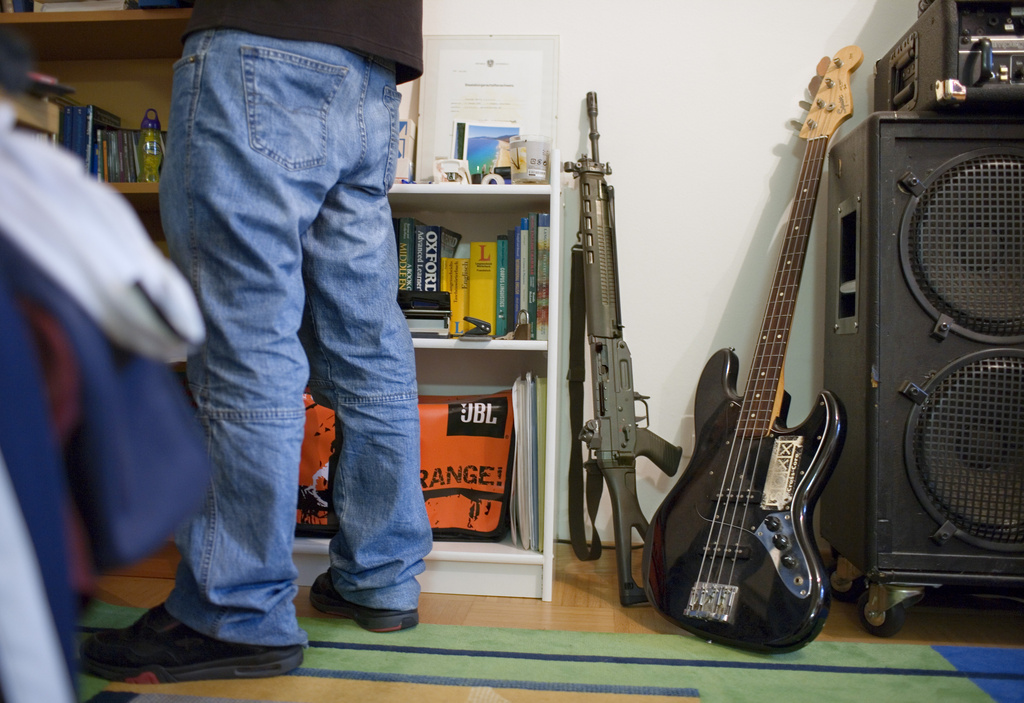
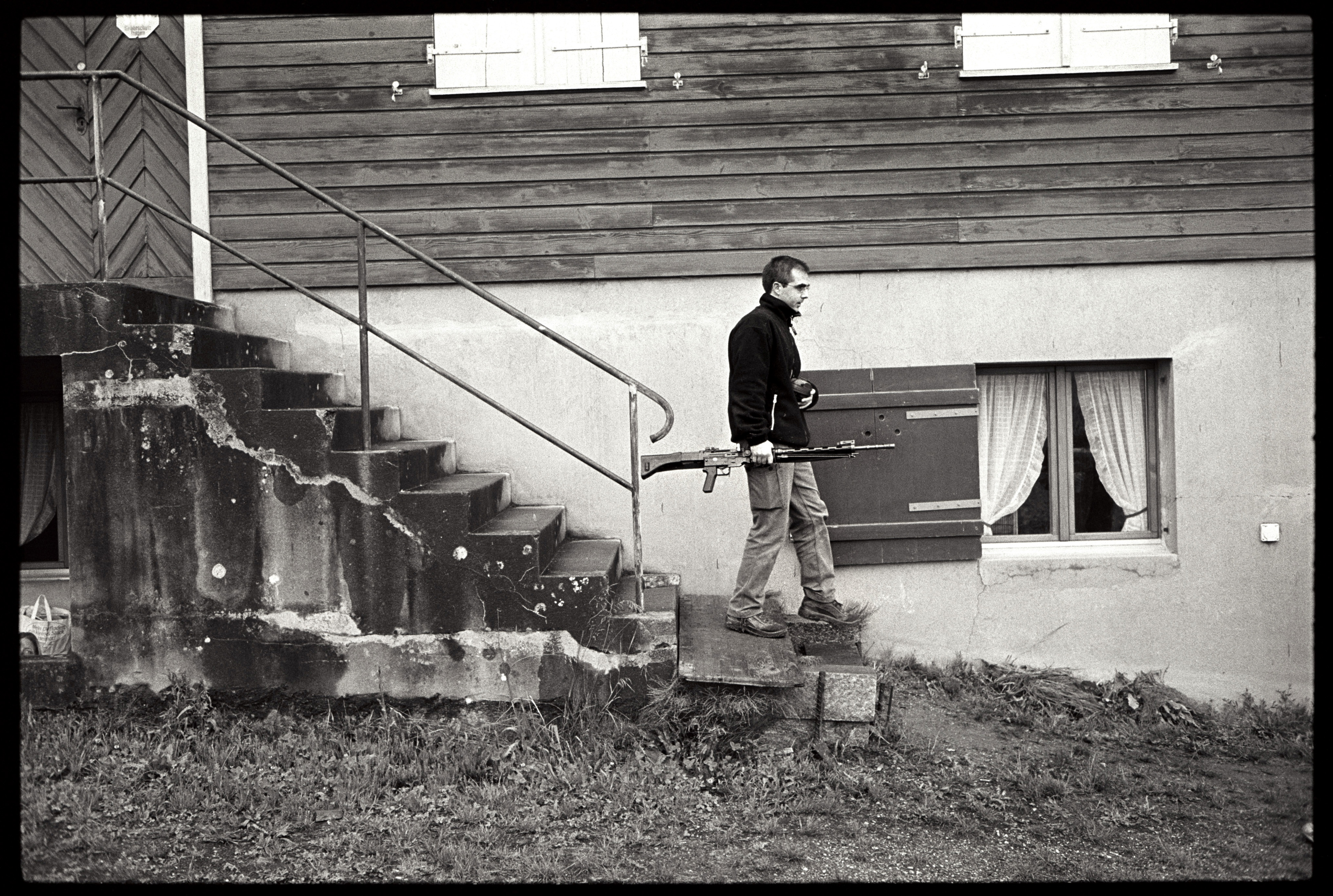
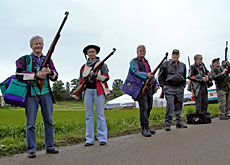
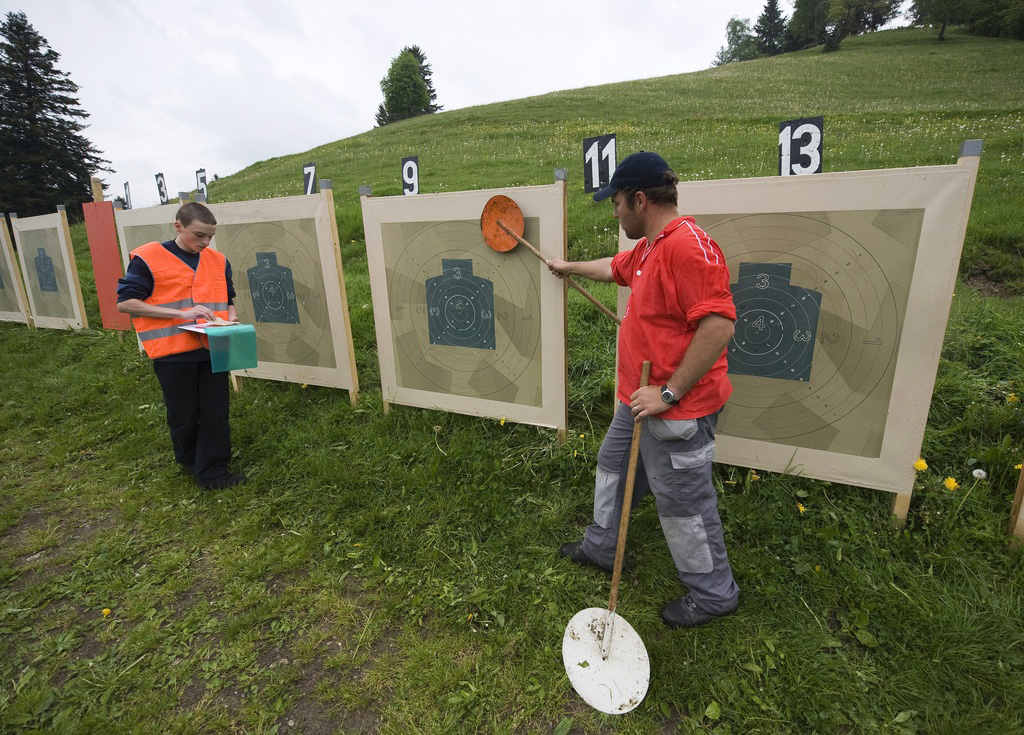
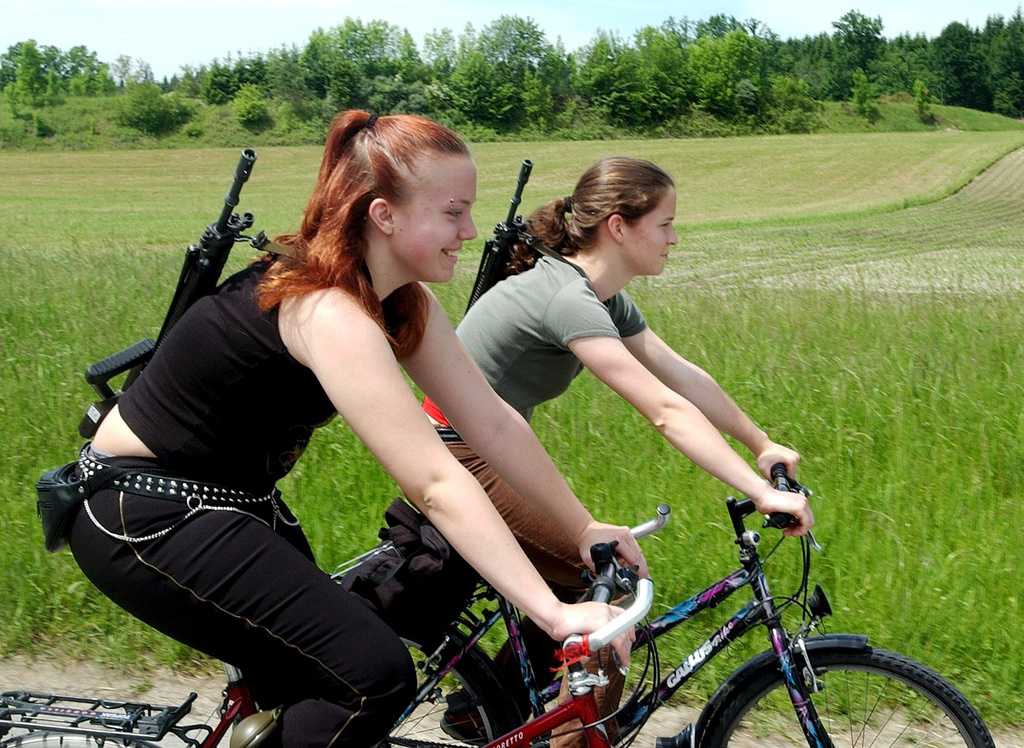
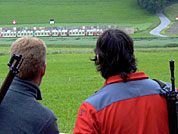
You can find an overview of ongoing debates with our journalists here. Please join us!
If you want to start a conversation about a topic raised in this article or want to report factual errors, email us at english@swissinfo.ch.